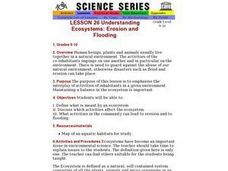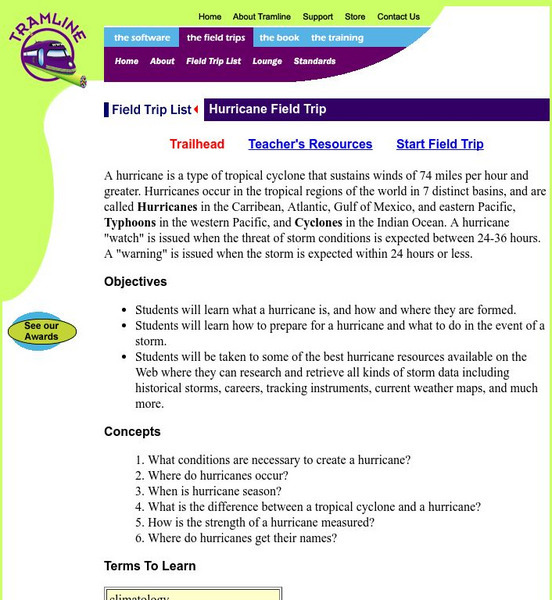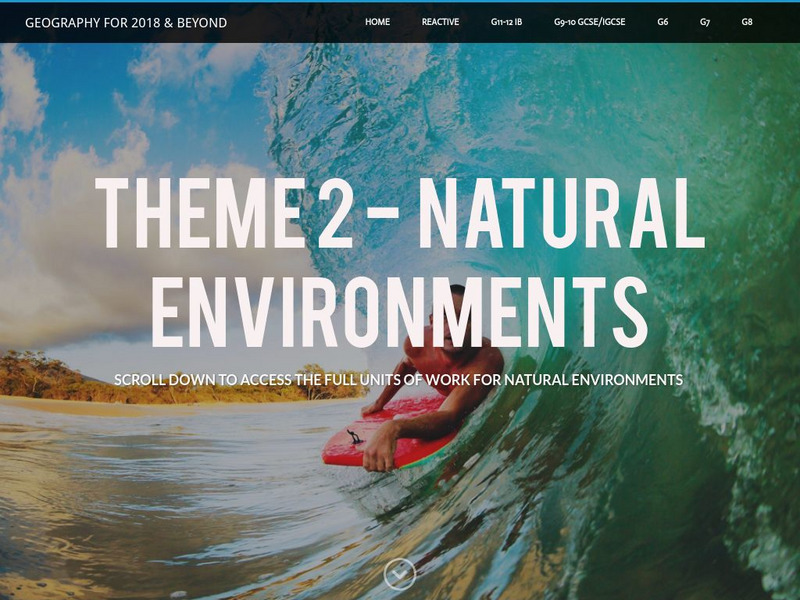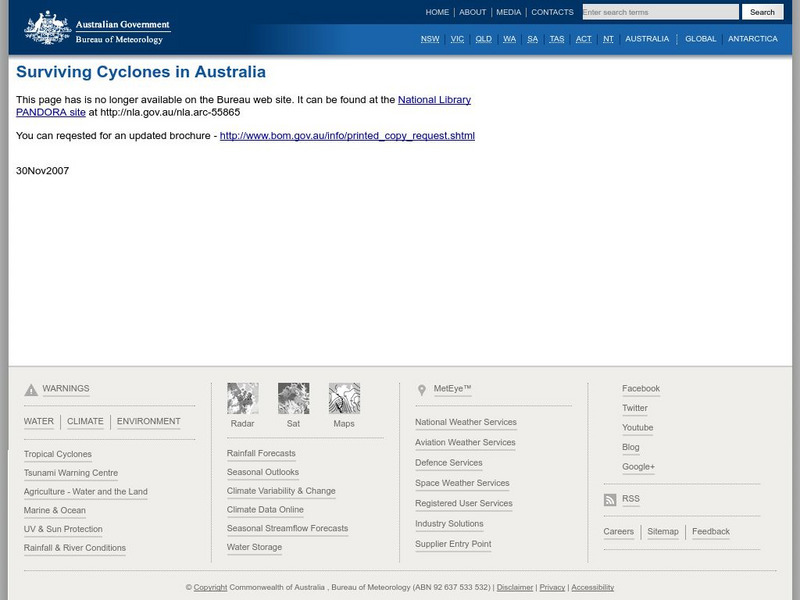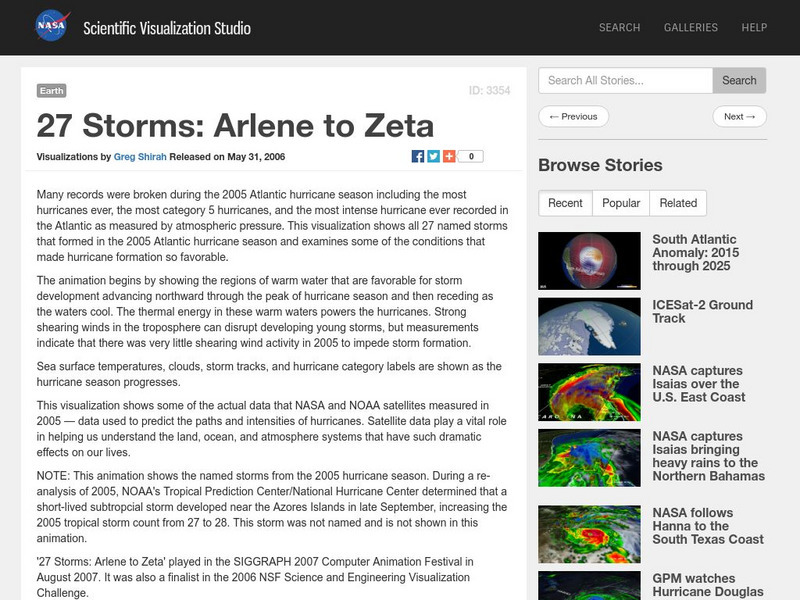Curated OER
South Asia Earthquake
Learners share what things are important to them. They discuss how students in Pakistan and India have been affected by the earthquake. They research how the victims are being assisted.
Curated OER
Tsunami
Students discuss the tsunami disaster. They read about the tsunami disaster in newspapers, magazines and web sites. They write a paragraph explaining the tsunami disaster.
Curated OER
South Asia Earthquake
Students research how agencies respond to emergencies. They brainstorm ways to help the victims of the earthquake.
Curated OER
Understanding Ecosystems: Erosion and Flooding
Students study the balance in the environment needed for ecosystems. They discuss what can lead to erosion and flooding.
Curated OER
Earthquakes
Students research statistics about the last five large earthquakes. They compare data in small groups and present their information orally to the class. They also attempt to predict the next large earthquake.
Curated OER
A Whirlwind Tour
Students explore volcanoes, hurricanes, and tornadoes through the use of the Internet.
Curated OER
Calm After the Storm
Students create posters providing information about Sri Lanka's history and society both before and after the tsunami. They write response papers considering the future of this small country devastated by the natural disaster.
National Weather Service
National Weather Service: Weather Fatality, Injury and Damage Statistics
Web site that contains detailed statistics involving natural disasters by year and type of disaster. Statistics are available in .pdf format.
Tramline
Hurricane Virtual Field Trip
What conditions are necessary to create a hurricane? Where do hurricanes occur? When is hurricane season? What is the difference between a tropical cyclone and a hurricane? How is the strength of a hurricane measured? Where do hurricanes...
Ibis Communications
Eyewitness to History: The Galveston Hurricane of 1900
Article with photographs about the Galveston hurricane of 1900 provides a survivor's eye witness account of the devastation.
Geographypods
Geographypods: Theme 2: Natural Environments
A rich collection of highly engaging learning modules on topics related to the natural environment. Covers four main areas - plate tectonics, forms and processes, weather and climate, and rainforest and desert. Within each of these,...
Geographypods
Geographypods: Hazards and Risk Management: Hazards and Disasters
This learning module looks at hazards and disasters. It explains the difference between them, looks at examples, and discusses future trends. Includes handouts, slideshows, activities, and videos.
University of Southern California
University of Southern California:tsunami Research Group
This site provides a world map of locations of past tsunamis, some video/animations of tsunamis, and a list of additional links to related topics.
PBS
Pbs Nova: Wave of the Future
This media-rich essay from NOVA Online describes the challenges involved in installing a warning system for tsunamis in the Indian Ocean.
Other
Bureau of Meteorology: Surviving Cyclones
Fascinating coverage by the Australian government of cyclones, cyclone preparedness, and more.
Other
Select Bipartisan Committee: A Failure of Initiative
A February 2006 report based on a House investigation into the local, state, and federal response plans to Hurricane Katrina. The findings found a long list of mistakes that were committed.
Other
The 1900 Storm: Remembering the Great Hurricane, September 8, 1900
The City of Galveston doesn't want the horrendous hurricane of 1900 to be forgotten. Read through the personal memoirs of those affected, see pictures of the devastation, and watch film clips that show the aftermath of the storm.
Other
Hurricane Science: Hurricanes: Science and Society: Galveston 1900
Article on the science of hurricanes and the effect on society, featuring Galveston, 1900. With map, list of facts and embedded links to vocabulary and related material.
Other
Usa Gov: Hurricane Recovery
Resources to help you prepare for hurricanes and to help you find family and friends, get help, and health and safety tips.
PBS
Pbs News Hour Extra: Lesson Plan, Future of Haiti
In this lesson, designed for grades 7 -12, the students will explain the social and economic achievements of Haiti, articulate the horrific consequences of the earthquake, describe the ways the economy responded to catastrophe and...
PBS
Pbs Teachers: The Storm
Explore the impact of communication system failures on victims of the 2005 Hurricane Katrina disaster. Evaluate how governmental agencies in the U.S. help citizens in times of crisis and how this storm impacted their procedures.
The Field Museum
Field Museum: Exhibits: Nature Unleashed: Inside Natural Disasters
Discover the true powers of Mother Nature through this vivid collection of research, which delves into the causes of natural disasters and the impacts on those affected.
Other
National Resources Canada: Landslides and Snow Avalanches
Defines a landslide, avalanche, and a rockslide and provides examples. Describes the causes and effects of these events.





